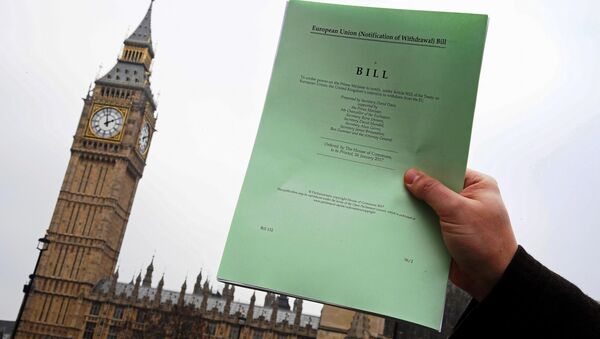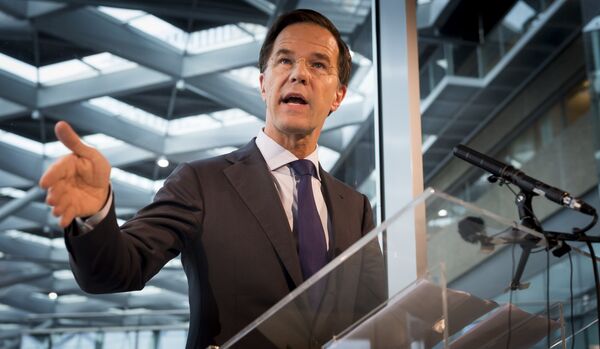It was intended to have been used in the event of a member state being taken over by a dictator who wanted to break away from the EU and was designed to be a mechanism to protect the EU in that event.
"It didn't occur to me that we would use it. I thought the circumstances in which it would be used — if ever — would be when there was a coup in a member state and the EU — which is a union of values — suspended the membership rights of the country where the dictator had taken over […] I thought that the dictator in question might be so cross that he'd say 'right, I'm off' and we could have a procedure under which he could leave," Lord Kerr told the BBC.
David Davis looks on as the author of Article 50 Lord Kerr addresses the Lords pic.twitter.com/WMIZNS7Yne
— Tom Boadle (@TomBoadle) March 7, 2017
He said that it was not inevitable that Britain would actually end up leaving the EU, saying:
"They might try to extract a political price but legally they couldn't insist that you leave."
Find out how the Government’s Plan for Britain will build a stronger, fairer Britain as we leave the European Union: https://t.co/viSp7q4ld7 pic.twitter.com/4ir1SLv8v9
— UK Prime Minister (@Number10gov) 20 March 2017
Widgets
During his time working in Brussels, Lord Kerr — who is now in the House of Lords — learned a great deal about the way the negotiations could move. He says a lot of countries appear to take a hard line in public, while being softer behind closed doors, where trade-off could be made.
During an interview in 2004, he gave an example of a fictional EU Directive on Widgets, which gives a huge pointer to the way the Brexit negotiations could go.
"The Department of Widgets in Whitehall desperately needed a change to the draft Widgets Directive being negotiated in the Widgets Council Working Group in Brussels and that an apparently insuperable obstacle to their getting their way was, say the Dutch, who took a different view on some fine point of Widgets theology," he said.
"And you might also spot that in a completely different Council, the Dutch were desperate to secure some policy aim, and the British were opposing them. And you would set out to analyze the relative weight of Whitehall's concerns, and might discover that, whereas our Widgets concern is a huge concern, the Department that was blocking the Dutch on the other issue didn't really care one way or the other, were unsympathetic to the Dutch, didn't feel as strongly about it as they sounded in Brussels.
"So you might go and see your Dutch colleagues, and hint at a deal: the art of negotiation is to find out what the other side, or all the other sides really want, and how much they really want it. Everyone asks for much more than they really want: everyone sounds more firm on all the issues than they really are on some. And you might discover, if you have correctly assessed it, that the Dutch didn't really care about our point on Widgets, just as we didn't really care about their point in the other Council.
"If so, and your Dutch colleague had enough nerve — and the Dutch usually did — then lo and behold! within two or three weeks both dossiers would have been settled and the British would have got what they wanted, on the one that mattered to them, and the Dutch would have got what they wanted, on the one that mattered to them. And nobody back in [the countries'] capitals would have known how it was achieved.," Lord Kerr said.






